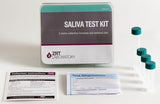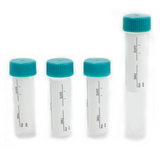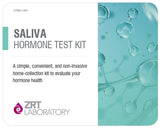Female Saliva Hormone Test — Profile I (5-Hormone Panel)
The Female Saliva Hormone Test (Profile I) measures five essential hormones that regulate mood, fertility, energy, and overall health. Using a simple at-home saliva sample, this non-invasive test provides precise insight into hormonal balance and helps identify deficiencies or excesses that may be affecting well-being.
What’s Measured
- Estradiol (E2): primary estrogen that regulates the menstrual cycle, fertility, and bone health
- Testosterone (T): supports libido, muscle tone, mood, and vitality
- DHEAS (DS): adrenal hormone that balances estrogen and testosterone
- Progesterone (Pg): regulates cycles, supports pregnancy, and stabilizes mood
- Cortisol (C): stress hormone controlling metabolism, immunity, and daily energy rhythm
- How and when to Collect your saliva samples: Saliva Testing Instructions
- Click to see >> Sample Saliva Test Result Report
Key Benefits
-
Comprehensive hormone overview — evaluates five key hormones that influence reproductive and adrenal function
- At-home collection — no needles, no clinic visits
- Fast lab results — detailed report in 3–5 working days after your sample arrives
- PhD specialist analysis — expert commentary and recommendations included
- Clear results — visual charts + numeric values for easy interpretation
- All-inclusive pricing — lab fee included, you only cover postage
- Valid 12 months — test anytime within a year of purchase
- Confidential + secure — private home collection and reporting
Why Test Hormones in Saliva
Saliva testing measures bioavailable (active) hormones — the fraction your body actually uses. It’s non-invasive, allows for timed samples (e.g., morning cortisol), and gives a more accurate reflection of functional hormone status than serum total levels.
Who It’s For
Women experiencing:
- Fatigue or low energy
- Mood changes, anxiety, or brain fog
- Irregular or painful cycles
- Hot flushes, night sweats, or sleep issues
- Low libido or fertility concerns
- Weight change or stress symptoms
How It Works
- Order your kit online.
- Collect saliva following the included step-by-step guide.
- Post your sample to the accredited lab.
- Receive results within 3–5 working days with full analysis and interpretation.
What You Receive
- Graphical + numeric hormone readings
- Laboratory commentary by a PhD Hormone Specialist
- Practical recommendations for restoring hormonal balance
FAQ
1. Which hormones are tested?
Estradiol, testosterone, DHEAS, progesterone, and cortisol.
2. Why saliva instead of blood?
Saliva measures bioavailable hormones — the active fraction affecting your tissues.
3. How long do results take?
You’ll receive your report within 3–5 working days after lab receipt.
4. Will a specialist review my report?
Yes. A PhD Hormone Specialist adds personalized commentary.
5. Do I need to stop medications or HRT?
Follow the kit’s timing notes or ask your clinician before testing.
6. Are there extra fees?
No. The lab fee is included; you only pay postage.
7. How long is the kit valid?
Up to 12 months from the purchase date.
8. Who should consider this test?
Women with cycle irregularities, fertility issues, low mood, fatigue, or menopause-related symptoms.
How to use:










